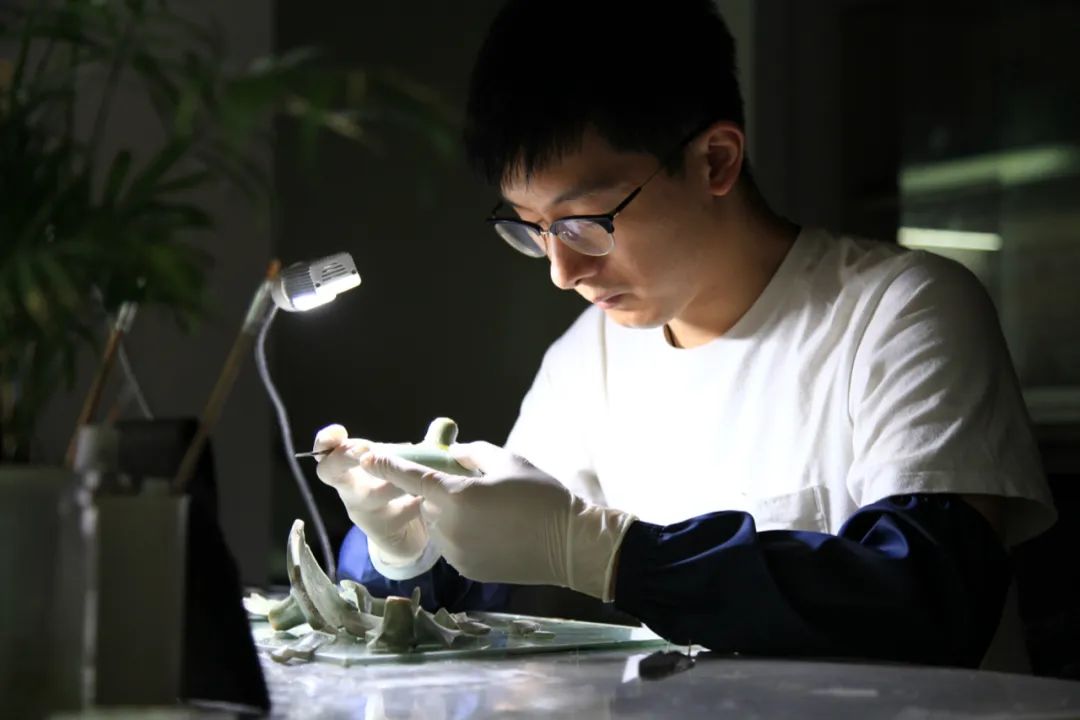The Arts Bridge Space








Lighting up the Scars
Object Restoration Workshop
February 26, 2022
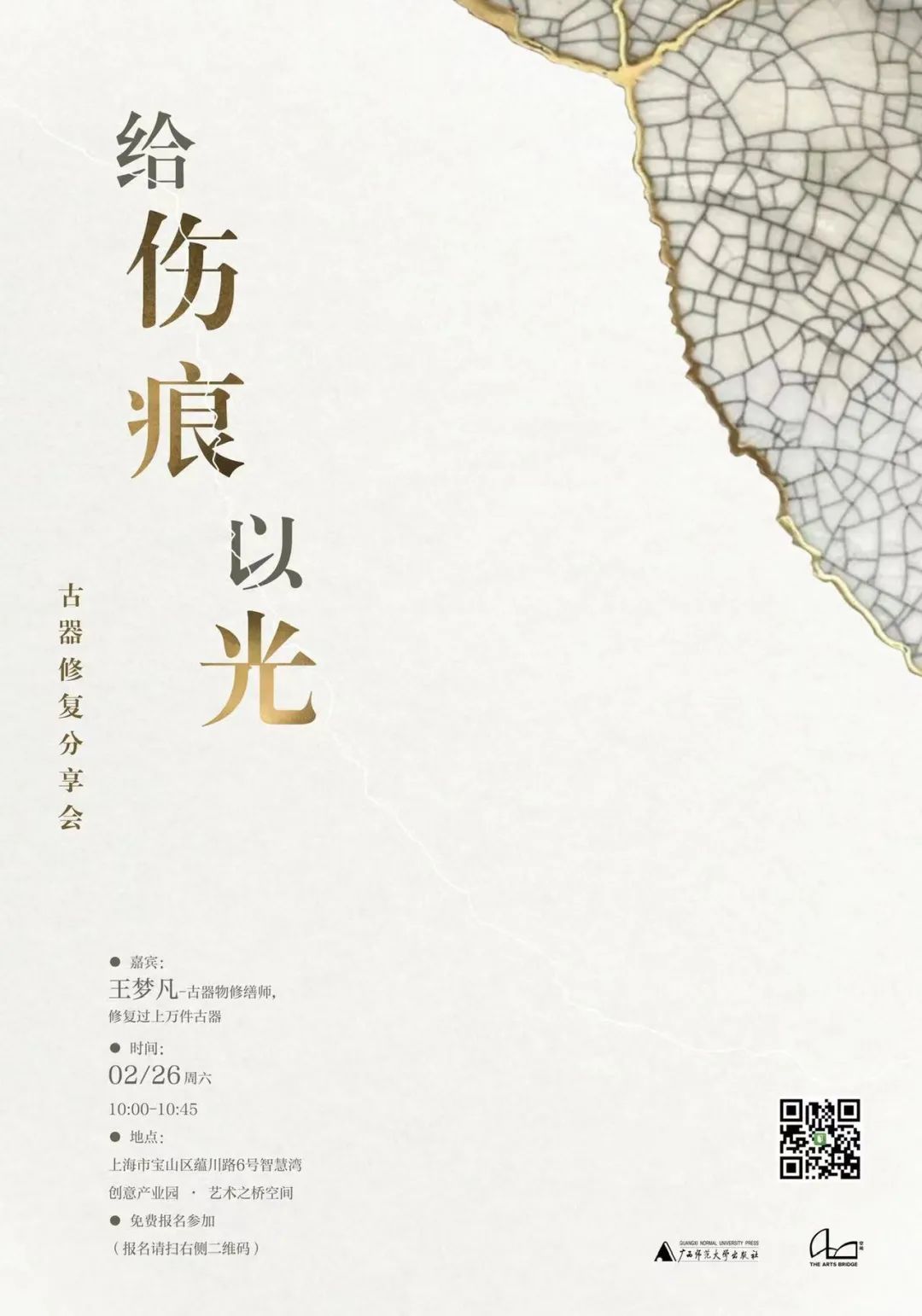
On February 26, 2022, the Arts Bridge Space invited Wang Mengfan, an antiques restorer, to share his knowledge and experience about restoration. Wang Mengfan has rich experience, repairing tens of thousands of antiques and extraordinary skills at his craft.
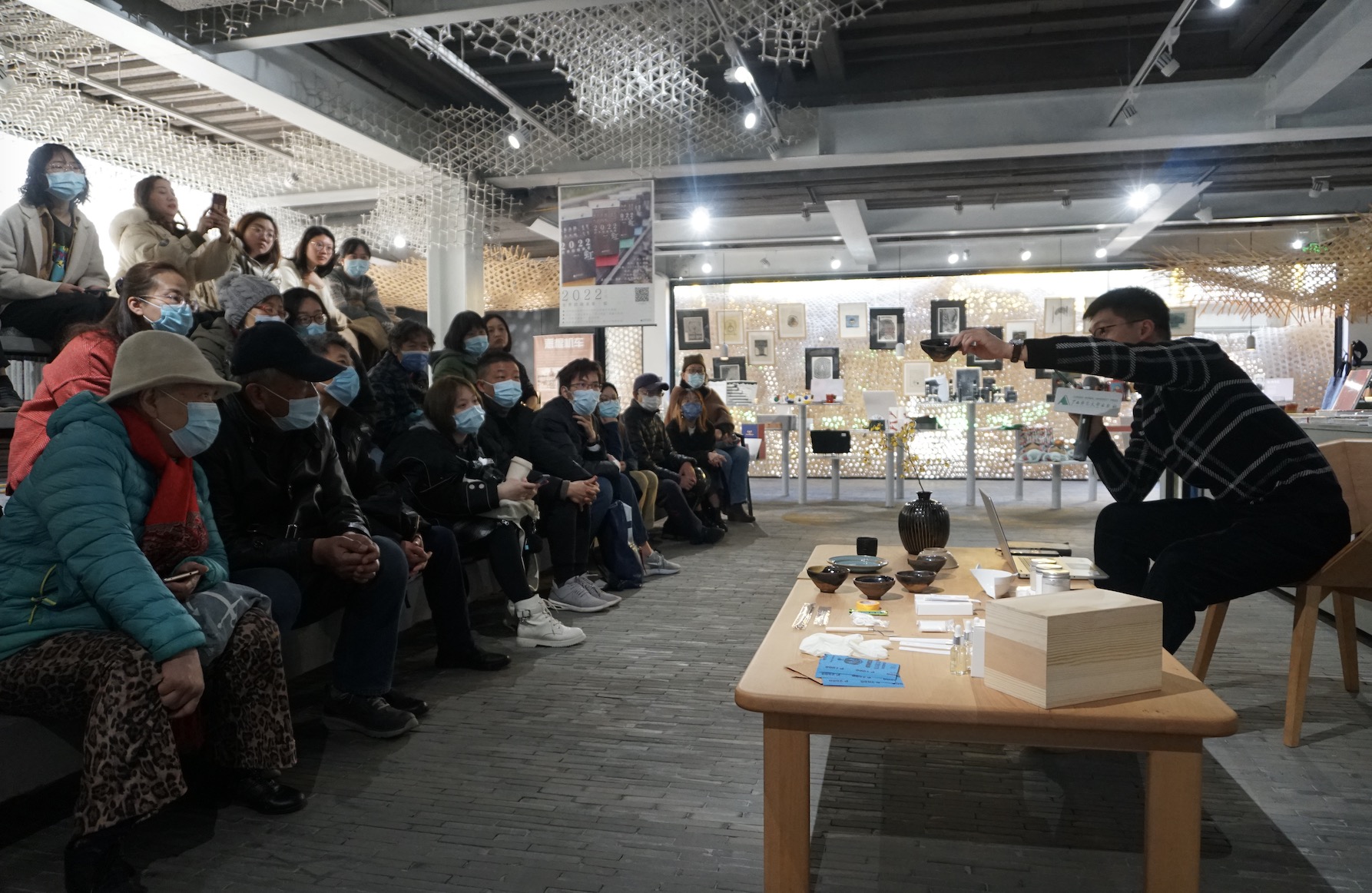
At the beginning of the sharing event, Wang Mengfan told us about the origin of Jinxiu restoration, the different materials used and the theory behind restoration. He also brought along several objects from private collections that have been repaired for attendees to examine up close. Questions provoked a meaninful discussion among Wang Mengfan and participants who share a strong interest in antique restoration. Wang Mengfan's online course has been recorded and will be available online soon.
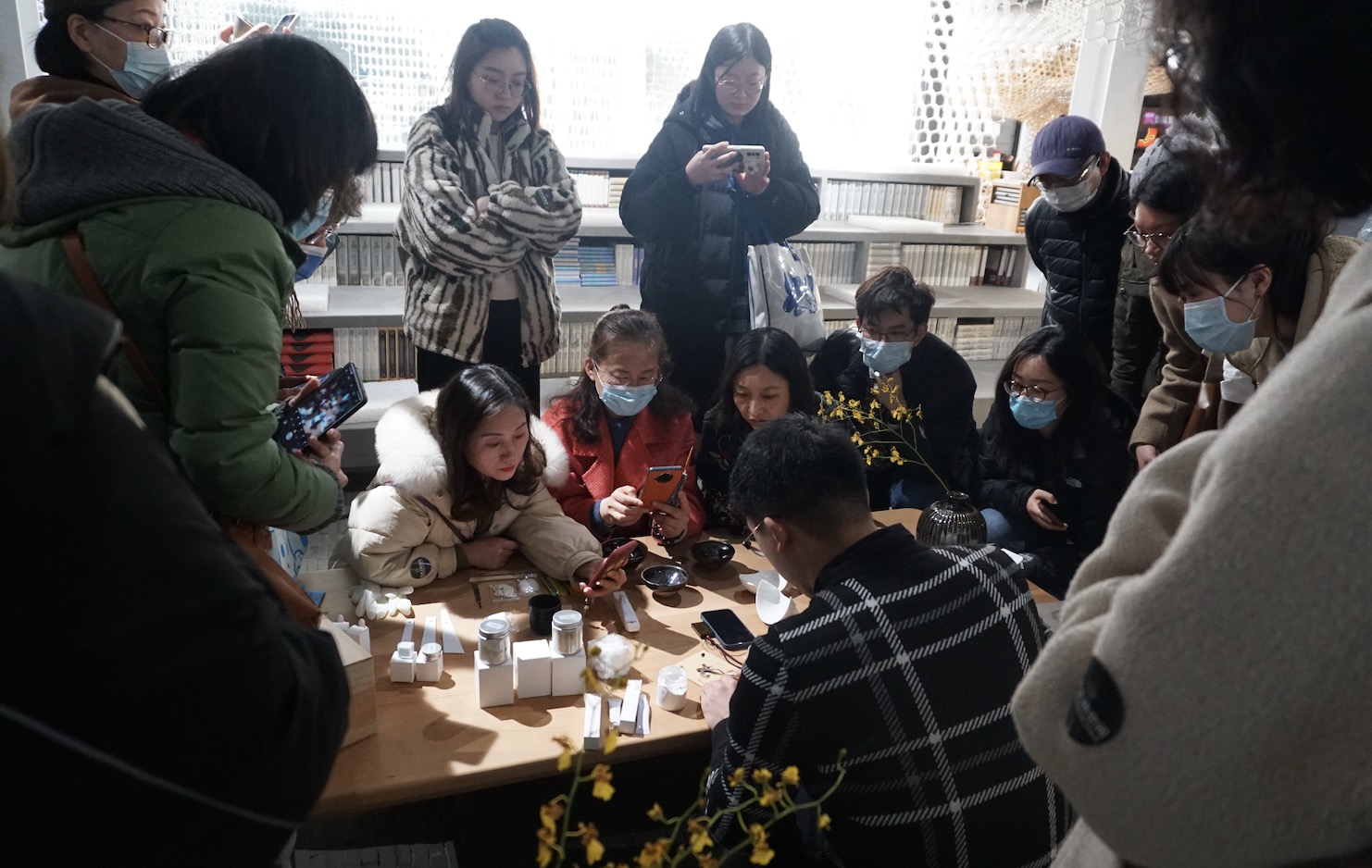
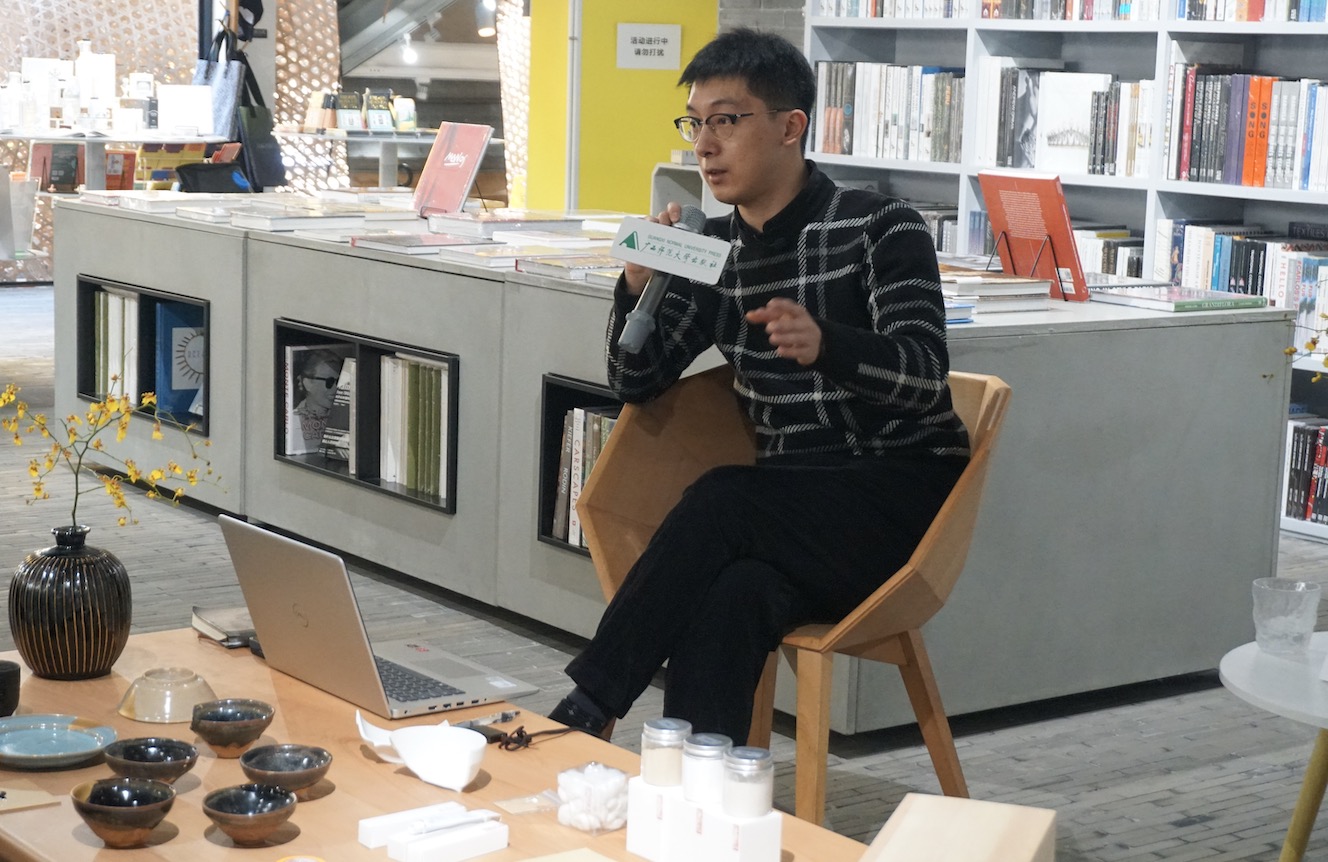
Imperfect Perfection
The Japanese art of fixing pottery, known as ‘kintsukuroi’, is the method of using natural lacquer to repair broken artifacts. It is a skill that requires both technology and beauty.
More than 90% of the world's raw lacquer is produced in China.
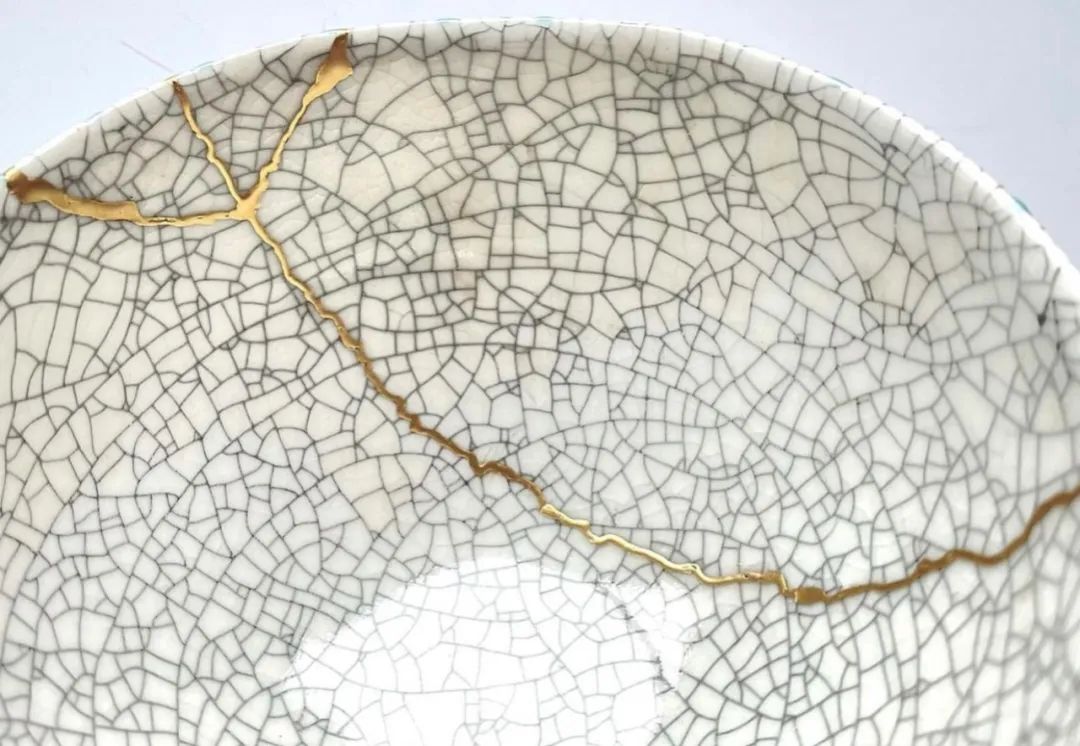
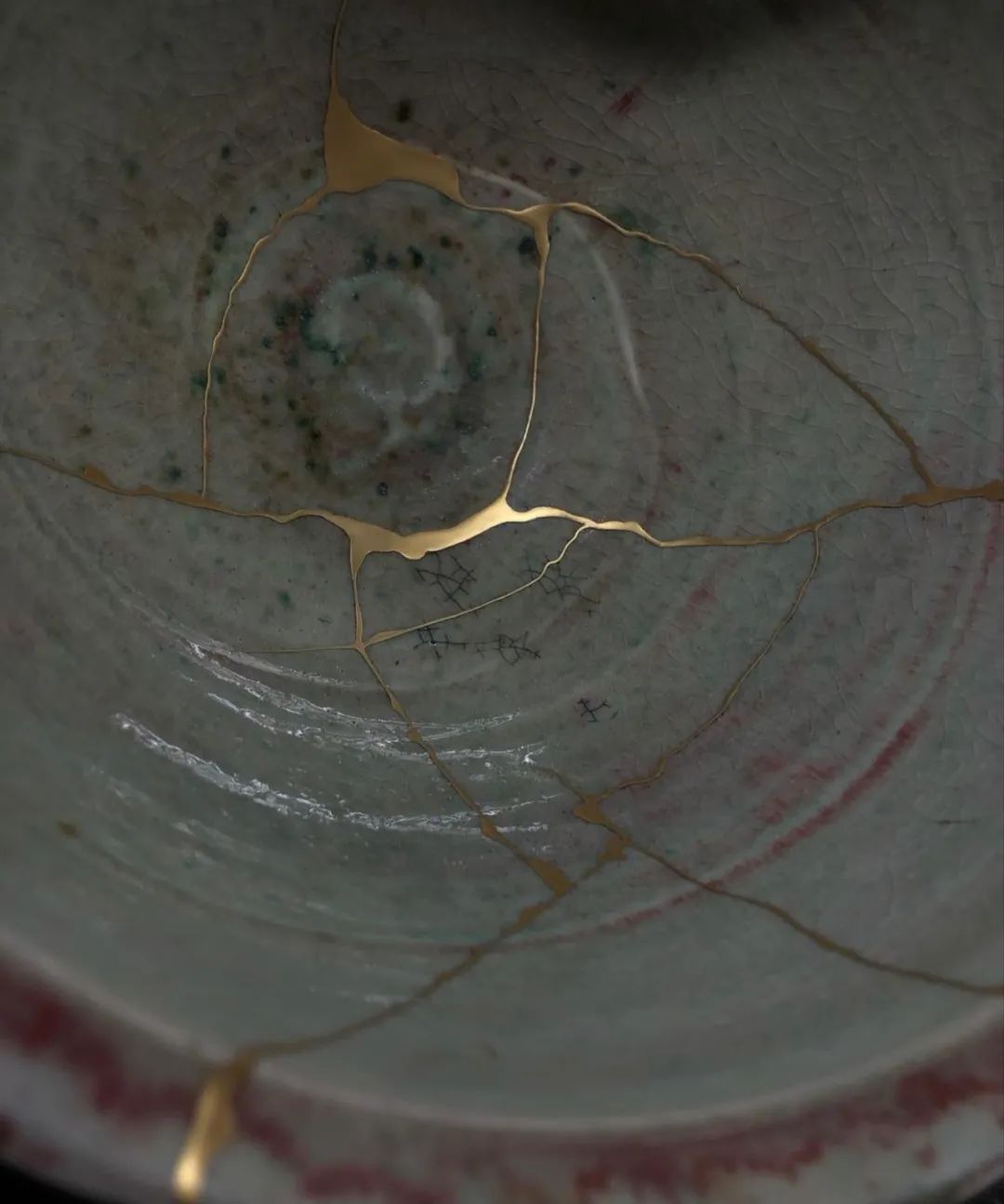
Raw lacquer, is a milky white pure natural liquid paint harvested from the lacquer tree. Upon contact with air it gradually turns brown and the surface dries and hardens in about 4 hours to form a paint film.
The use of lacquer has a long history in traditional Chinese furniture and records of lacquer trees exist from ancient times.
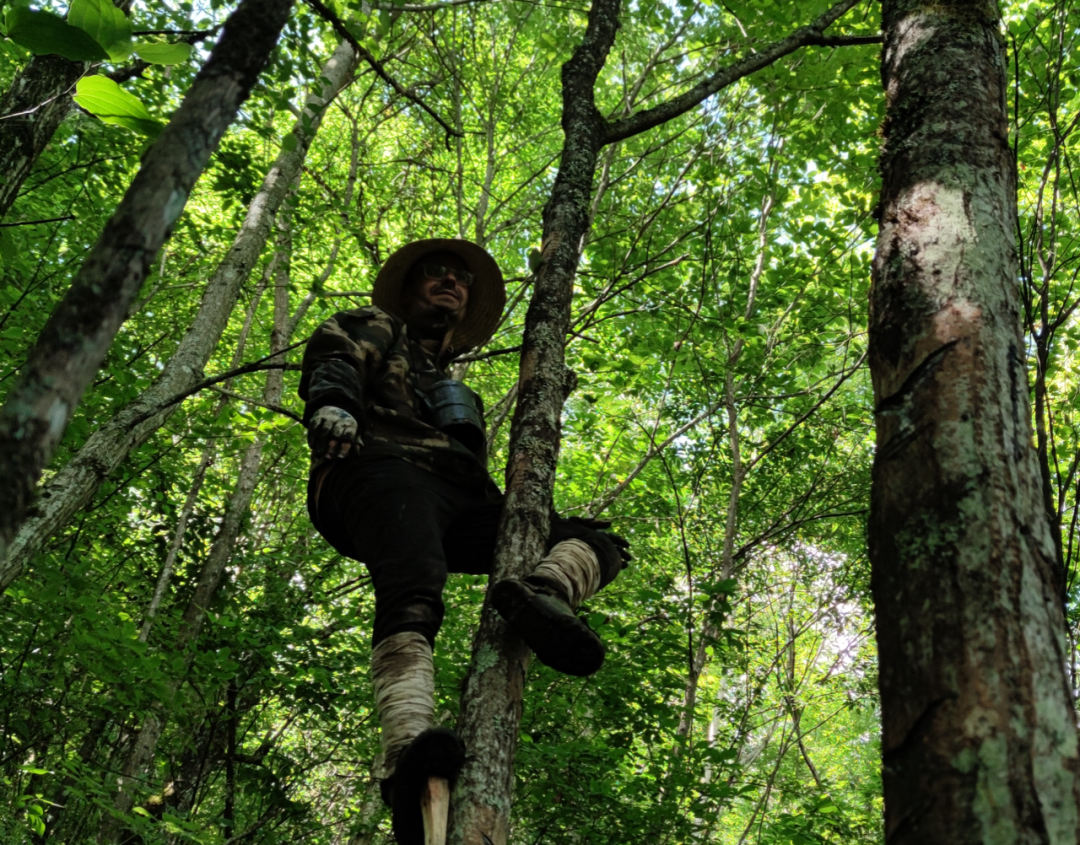
(French artist Vincent Cazeneuve harvests lacquer in Chengkou, Chongqing )
Lacquer producing regions
Chengkou raw lacquer:
Produced in Chengkou, Chongqing, it has a high laccase content, is bright with a strong acidity and dries quickly.
Maoba raw lacquer:
Produced in Enshi, Hubei Province, it has a high urushiol content, good film thickness, high viscosity, is bright and dry.
Ankang natural raw lacquer:
Produced in Ankang, Shaanxi Province, it has a high urushiol content, acidic flavor, good brightness and stable drying qualities.
Guizhou natural raw lacquer:
Produced in Nangan Township, Dejiang County, Bijie and Tongren City, Guizhou Province, it has high urushiol content, deep black colour, high viscosity and dries quickly.
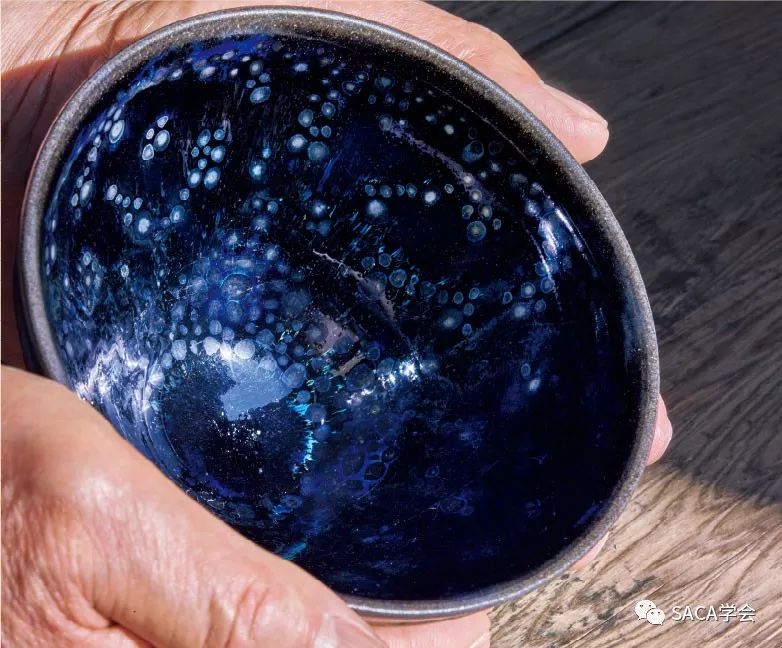
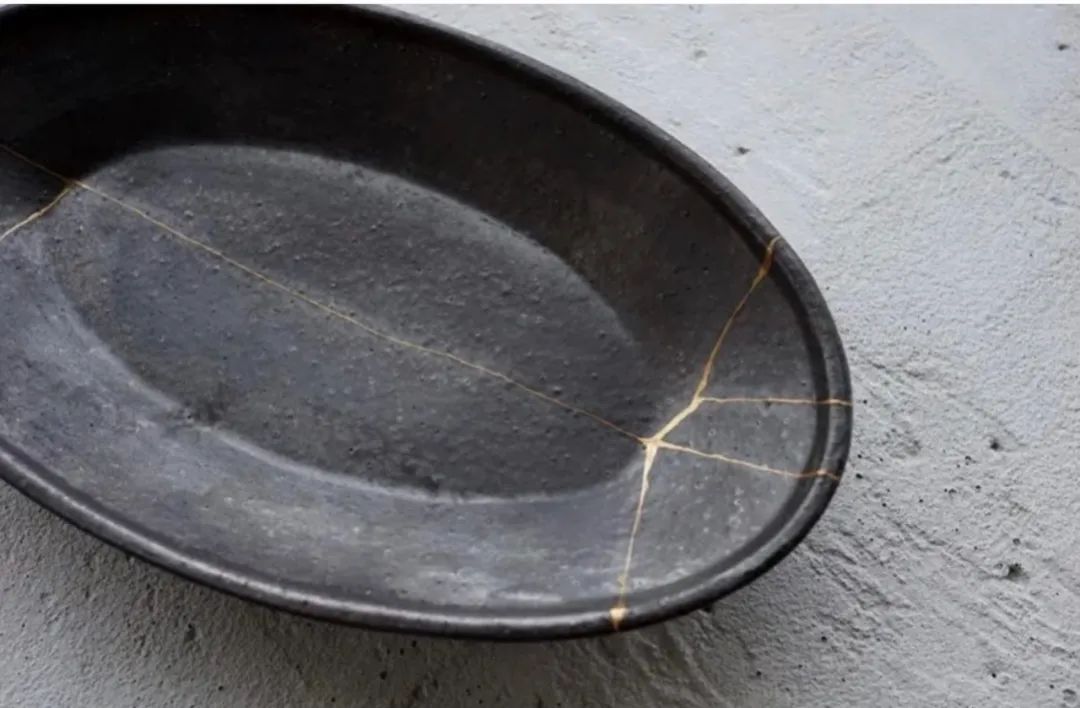
Yaobian Tianmu, Song Dynasty, national treasure, collected by Japan Dade Temple Longguang Courtyard. Repair status: the mouth edge is repaired with 2 x 1.5cm brown paint. The lacquer restoration reproduces the integrity of the work of art. The "deformity" has not prevented this artifact from becoming a national treasure. For thousands of years, it has continued to radiate the beauty of silence and mystery.
Gold kintsukuroi Antiques
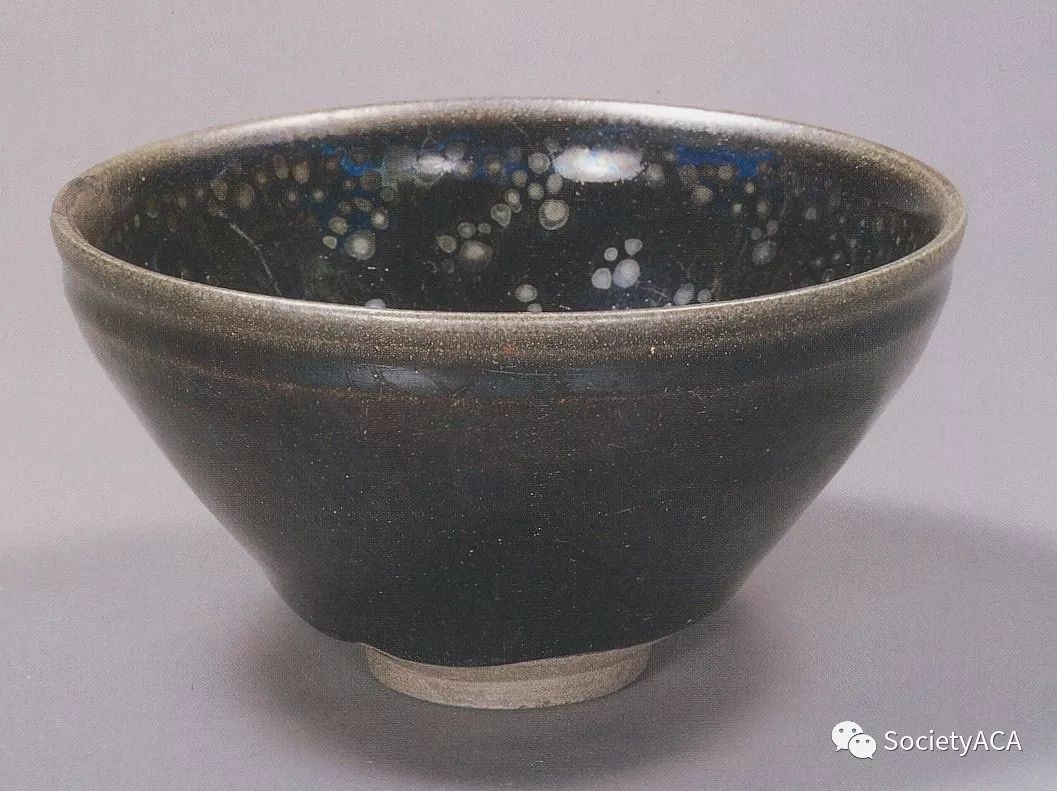
Tea bowl: Yaobian Tianmu tea bowl, collected by Longguang Courtyard, Kyoto. Product appearance: there is repair along the mouth
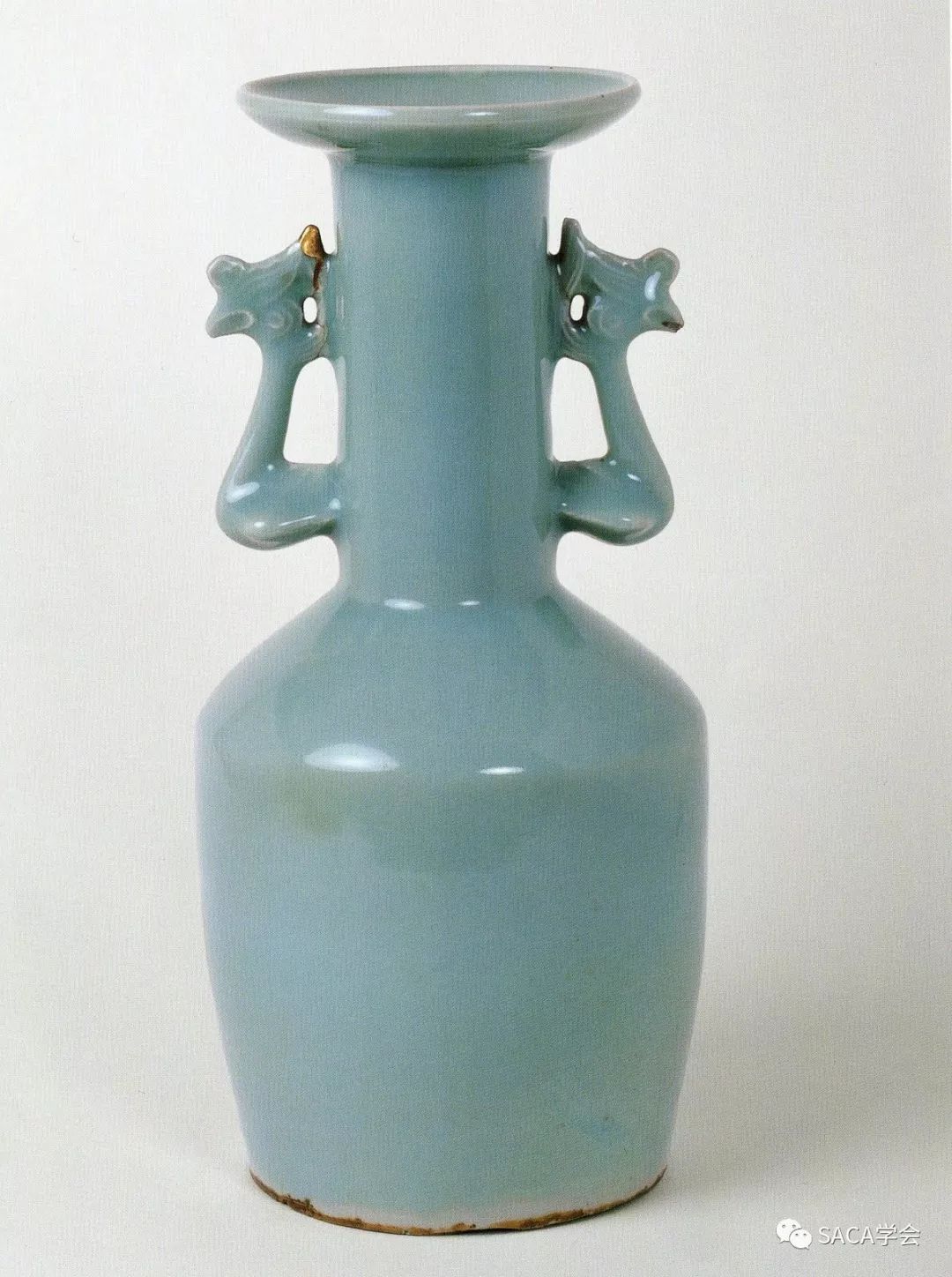
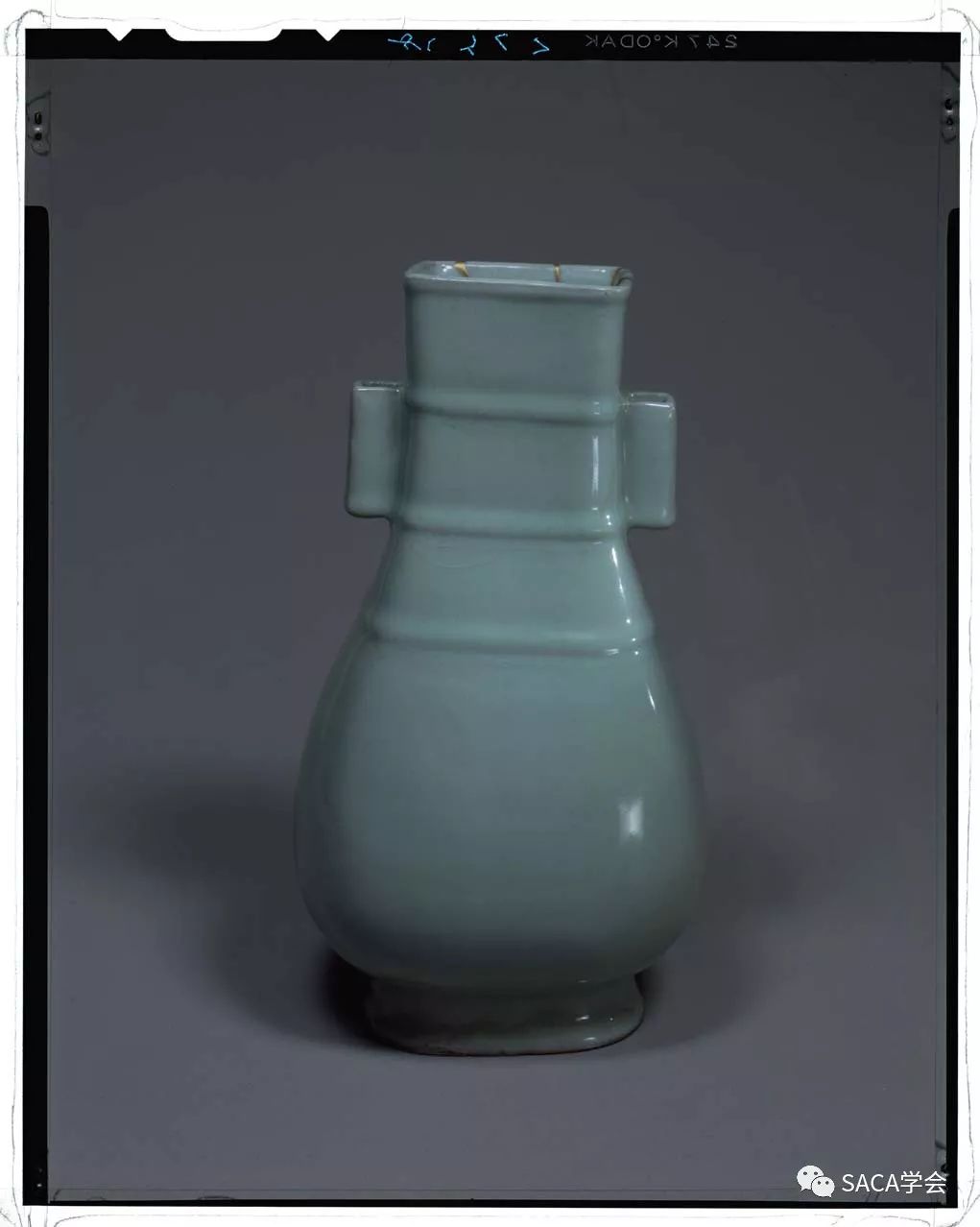
Huasheng: Celadon ear jar from the official kiln of the Southern Song Dynasty, collected by the National Museum of Tokyo - Product appearance: the body is tilted and the mouth edge is repaired
-Instructor-
Wang Mengfan, antiques restorer
